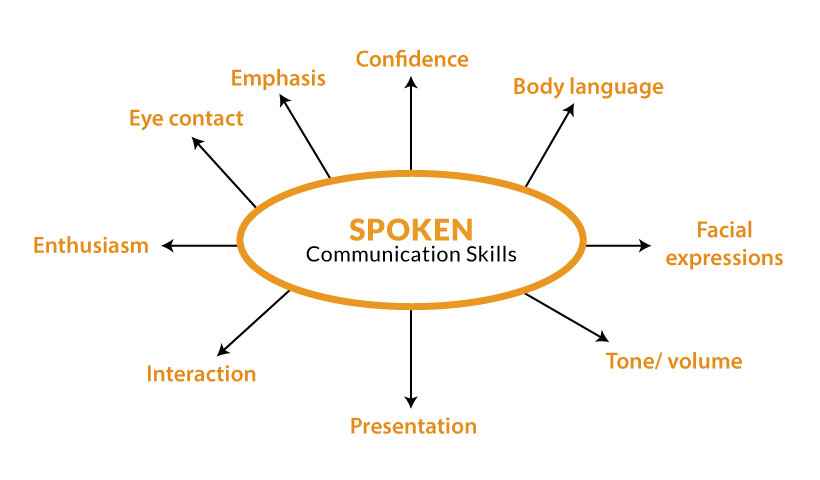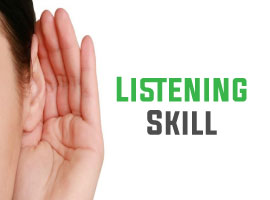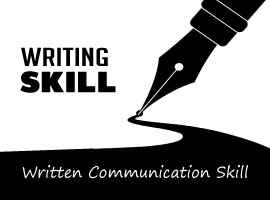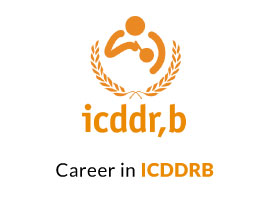Have you ever felt annoyed while typing a message and thought that it would have been better to just say it? Well, I feel the same. Oral or spoken communication is the easiest and fastest expedient method of communication.
There are different types of spoken communication. Moreover, they have importance and advantages too. This write-up aimed to let you know the pros and cons of oral or spoken communication. Happy reading!
What is Spoken communication?
Spoken communication is a type of communication in which spoken words are used to communicate with others. In this type of verbal communication process, the speaker gives his/her feelings, thoughts, ideas, and opinions to words in the name of conversations, speeches, meetings, discussions, and presentations.
Many people confuse spoken communication with verbal communication. Both are not the same. Verbal communication is a type of oral or spoken communication and it only refers to spoken communication. Oral communication includes non-verbal cues too.

Definition of spoken communication
Out of five different types of communication systems, there are two main types. One is speaking (spoken communication) and the other is writing (written communication). Oral or spoken communication is a way of a communication method in which we say something to communicate with others. It is the fastest and easiest way to express our feelings, thoughts, ideas, and opinions with others.
Conveying a message to communicate with others by using spoken words is known as spoken communication. Spoken communication is the primal method of communication. Spoken communication consists of 5 parts.
• A sender - who conveys the message
• A medium - a way of message transmission, which includes in-person, video calls, or voice notes.
• A message – the content material of the communication
• A receiver – who receives the message
• Feedback – feedback or response completes the process
Types of spoken communication
Oral or spoken communication has many types. Some major of them is discussed below.
• Face-to-face conversation
A face-to-face conversation is a type of spoken communication in which the speaker stands or sits before the listener. It may be between two or more people or a small group of participants. An immediate or quick response is the most important issue in face-to-face conversation that makes clarification possible.
• Meeting
Generally, a meeting is like a small group conversation but it may be formal most of the time. The subject of the conversation is fixed. There is one leader among all the participants, who runs the conversation and maintains proper order.
There are many types of meetings. It covers from the small meeting of four or five persons to the large conference of the stockholders meeting.
• Interview
An interview is another type of spoken communication in which, the interviewers asked questions of the interviewee. There is one person or one or more persons on both sides.
An interview may be for a job. However, it may be to start a business or something together. An interview aims to assess or judge whether the person is eligible for the post or not and for starting a business whether it would be beneficial to start a business relationship together.
• Discussion
Discussions are informal most of the time. Generally, this is a kind of face-to-face conversation. However, it can take place by video conference, if any of the members cannot be present at the same time.
• Telephone
A telephone call is a variety of spoken communication in which the tone of voice is equally important as the words. As the listener is not present in the situation, the speaker has to be careful when delivering the words. Because misunderstanding may happen due to similar sounds in words.
• Presentation
A presentation is a face-to-face setting on a formal and well-researched talk on a particular topic. Generally, it is delivered to a group of a knowledgeable audience. The person, who presents the whole presentation, is required to answer all related questions at the end of the presentation. The presenter is responsible for ensuring the clarity and comprehensibility of the topic among the audience.
• Public speech
A public speech or a detailed lecture on a specific topic is one kind of face-to-face setting but the audience is innumerable that sometimes the speakers have to use microphones. The distance between the speaker and the audience is much more than in any face-to-face meeting. The distance increases, as the audience gets larger. The open-air public concert or meeting is the perfect example of this type of communication. A public speech ends up with applause rather than with questions from the audience.
Importance of spoken communication
Spoken communication plays an important role in our life. It is ultimately necessary to communicate with others. Moreover, it is equally important in our workplace too. Such as arranging a meeting, making a presentation on a particular topic and interviewing a person for a job, and so on.
However, effective spoken communication goes beyond just talking and may enclose the way of delivering the message and how the message is received by others. Now, just take a close look at the importance of spoken communication below.
• Time-saving
Spoken or oral communication is the most time-saving than other types of communication. Both in private and professional life, speaking rather than writing save more time. Instructions that are given orally are more precise and clear compared to the other types of communication.
• Helps you think
Spoken communication helps you take the right decision for the future. You can reconsider your past activities, evaluate your present condition and think the best about your future by using your thoughts. You may share your ideas with your colleagues to create good vibes in your workplace.
• Express yourself
Various types of spoken communication may help to express your feelings, experiences, thoughts, and ideas. You will be able to define yourself before your subordinate by using words.
• Providing clarity
Clarity is another important aspect of spoken communication. When in a face-to-face meeting, someone presents an issue it is hardly any possibility to have a misunderstanding. People can understand more clearly when someone's presents are directed at them. However, they may ask a question and get a quick response, if they cannot understand anything. Thus, spoken communication provides clarity.
• Organizes complex ideas
Whether it is your personal life or your professional life, you hold ideas and thoughts. Communicating ideas aloud with your partner or your colleagues can help you simplify your ideas and make them a good turn. Again, your capability of explaining complex ideas easily may appreciate by your team members. It is also beneficial to explain your ideas and thoughts to your clients or business partners.
• Increases motivation
Hearing an inspiring or encouraging speech from your superior is much more effective and seems more genuine than reading an impersonal email. Verbal communication often lets your team members or your beloved ones feel more valued and precious. Words of appreciation or acknowledgment from your superior can increase your confidence level and thus leads to productivity.
• Influences your mood
The way you speak or use oral language can also affect your mood. How you or your supervisor talk may have an impact on your perspective and attitude toward your present work. At the same, when you are the supervisor, every word of praise or motivation from you can make your subordinates happy and enjoy their work more.
Advantages of spoken communication
Spoken communication has many advantages. Some important of them are given below.
Touch of feelings:
Most of the time, oral communication is performed face-to-face, both the speaker and the listener can show and see the other side's expression and feelings. This will help to understand better and make a good bonding. It improves confidence.
Flexibility:
When you are in the process of spoken or oral communication, it will give you the flexibility to change your ideas and opinions according to the situation or change the topic or ideas followed by the mood and interest of the listener.
Saves time and increase increases efficiency:
Spoken communication requires less time than written communication. When it takes less time to communicate with your teammates you can easily spend more time doing it properly which increases your efficiency.
Spontaneous response:
Spoken communication has an element of immediate response latent in it. In most cases, in a face-to-face conversation, a quick response is possible in spoken communication. When the receiver could not understand, what the speaker says he/she can easily ask for it, which is not possible in written communication.
Problem resolution:
Spoken communication performs its best in problem resolution. The conflicts, disputes, and many issues/differences can be a line to an end by talking them over.
Cheaper:
Spoken communication is cheaper than written communication as the message is transmitted only orally.
Quickness in exchange of ideas:
The ideas can be conveyed to distant places quickly because this medium does not require the message to be written.
Disadvantages of spoken communication
There is no doubt about the advantages of spoken communication but despite all this, it has some disadvantages too. Let’s discuss some disadvantages of spoken communication.
Inappropriate for a lengthy message:
Spoken communication is fit for short messages. A lengthy message is hardly understood when it is said orally. It is suitable for a brief exchange of ideas only.
Expensive method:
When short messages or information are delivered to distant places over telephone calls that time-spoken communication proves expensive.
Abuse of time:
Well, spoken communication is considered a misuse of time when an important issue is unnecessarily lengthened through the name of a meeting. The useless talk covers a certain period during the meeting while performing the formality, which is missing in written communication.
Lack of proof:
The written proof is not recorded in spoken communication. So, if you need some references in the future, you find none. As no written proof is left for further need, sometime trouble may occur.
Presence of both parties:
The presence of both parties is essential in spoken communication. Well, there may be a misunderstanding. Presence means face-to-face it is not required that both parties have to present physically.
Useless for policy matters:
Spoken communication is kind of useless in the matter of communicating with policies, rules, or other important messages.
Missing clarity:
Clarity is possible when the conversation is short. But it is a little bit missing when the conversation is long and misunderstanding may happen due to similar sounded words and the hurriedness of the speaker.
How to improve spoken communication skill
For a progressive career, strong spoken communication is mandatory. But not all of them are born with this. By following some simple tricks, one can easily achieve this skill. So, what are the tips? Here they are.
Keep your speech clear:
Always try to keep your speech clear and concise. A well-prepared and clear concept is appreciated by all.
Concentrate on your voice:
Concentrate on your voice when you deliver a speech before the audience. Try to use a strong and confident voice so that everyone can hear and understand you without putting in any effort.
Think before you speak:
Always try to take some time to think before you deliver it to someone. Spend a little time considering what you want to say before speaking to the audience.
Try to listen carefully:
Try to listen carefully to what the speaker says. Talk less and pay attention. It will show your attention to the issues and problems which the speaker presents.

Be conscious about your tone:
Always put much effort into your tone so that the receiver receives the message with proper meaning. Ensure the attitude and tone of your voice so that your message wouldn’t misunderstand by others.
Be mindful:
Make sure that your words, gestures, facial expression, and body language match your conversation or speech.
Practice your presentation:
Before giving a speech or even an interview, practice in front of a mirror or record your voice, then play it back. It helps you to find out your problems in delivering a speech.
Examples of spoken communication:
Spoken communication is everywhere. Some of the important examples are given below:
• Audio messaging
• Commentary
• Customer service
• Film/movie or drama dialogue
• Interviewing
• Public speaking
• Singing
• Teaching
• Telephone calls
• Video conferencing
• Virtual presence
• Video game audio
• Television commercials
• Teamwork
• Storytelling
• Rituals and ceremonies
• Questions
• News
• Monitoring
• Greetings
• Explanations
• Debate
• Criticism
• Arguing
• Dictation
• Radio
• Grapevine
• Intercom
Oral or spoken communication is the fastest way of communicating with others. This skill is essential for the betterment of personal and professional life. Improving this skill helps you reach your destination. Go ahead!








